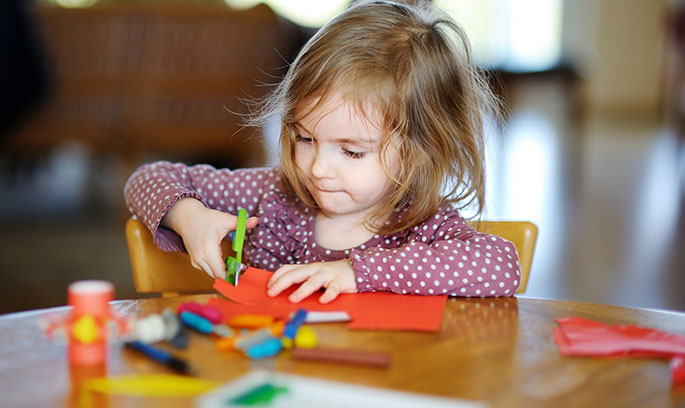Sweet Marissa
Meet Marissa. She was only 2½ years old when her parents connected with the Young Child Institute, a program of the Child & Family Treatment Center. Mom and dad were concerned about her emotional and behavioral functioning; her pediatrician thought she might be autistic. Since both of Marissa’s parents have developmental delays, it was important that she be assessed and treated.
When she first entered treatment, Marissa was exhibiting multiple, severe temper tantrums each day where she would hit, kick, and bite anyone nearby. Play skills were rudimentary, and she would only spend playtime lining up toys and moving them from one part of the house to another. Additional concerns included eating non-food items, refusal to go to bed, trouble following directions, and significant smearing of feces all over her house. Marissa and her parents began attending family sessions where they worked very hard to improve communication with Marissa, learned how to set appropriate boundaries and limits, as well as routines and consistencies to which Marissa responded very positively. Speech, occupational therapy and developmental disability service needs were assessed and she obtained additional support services as a result. Over time, Marissa gained vocabulary and communication skills, which included learning to identify and express her feelings to others.
While Marissa is important to staff at the Young Child Institute, Mom is equally important. She participated in Parent-Child Interaction Therapy (PCIT) and through this gained confidence in her ability to parent Marissa. She improved the attachment with her daughter, and Marissa’s play skills expanded where she began to exhibit appropriate pretend play. Temper tantrums, aggression, bedtime troubles, and smearing behaviors discontinued. Marissa continued making steady progress, however as she entered school, she had initial behavioral challenges which were addressed and then improved over time.
Both parents reported significant positive changes in Marissa’s behavior and openly shared how proud they were of how hard she worked to make these changes. Her parents remained optimistic, patient, and supportive and ultimately helped Marissa positively accept the birth of a younger sibling through their expression of love for her, as well as following the suggestions and interventions they learned in therapy.
Today Marissa engages openly in communication and age-appropriate play and expresses her feelings regularly to others. She has completed all treatment goals and has been successfully discharged from treatment at the Young Child Institute.



